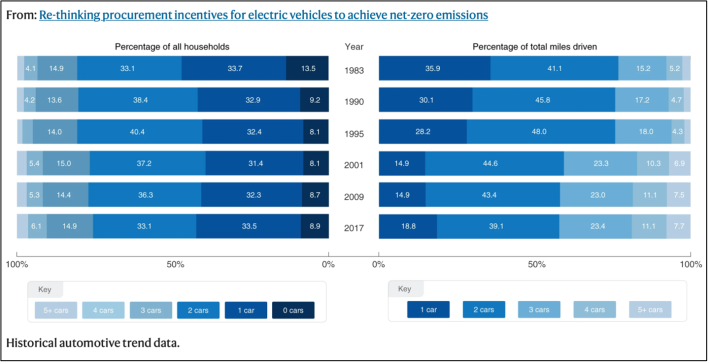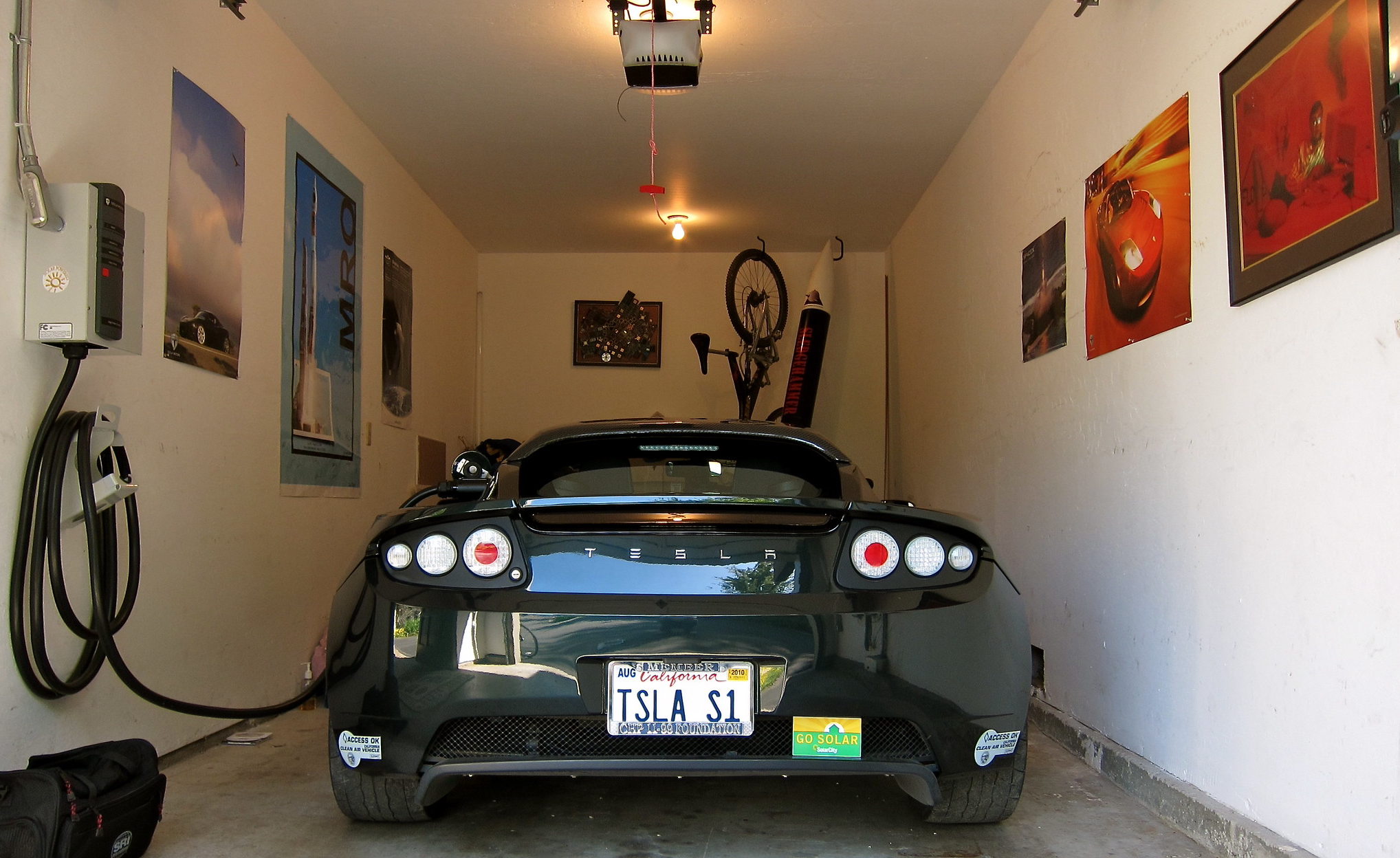America's approach to incentivizing electric vehicle adoption may actually increase emissions in the long run, a new study finds — because the wealthy people who are among the only ones able to take advantage of EV tax credits don't drive their green cars enough to make up for the heavy emissions impact of manufacturing them in the first place.
In a new paper published in Nature Sustainability, researchers modeled the lifetime emissions impact of the electric vehicles that more and more Americans are buying, thanks in part to federal and state tax credits.
More specifically, though, the researchers explored two often-overlooked factors that can have a seismic effect on how green an EV actually is: 1) whether it becomes a primary household vehicle, rather than a complement to a gas-powered one, and 2) how far it's actually driven over its lifetime.
"It’s important to understand that federal EV subsidies as they exist today today reward the purchase of electric cars, not the use of electric cars," said Dr. Ashley Nunes, a research fellow at Harvard and the lead author of the study. "If you went out today and bought an EV, you’d still get to keep that subsidy, even if your EV sat in the garage for the better part of five years and you drove your [car with an internal combustion engine] every day instead. That’s not a good use of government capital."

The problem with letting a Nissan Leaf rot in the carport, of course, is that EVs don't start racking up emissions benefits until they're actually out on the road.
Some automakers estimate that building an EV generates about 70 percent more emissions than comparable gas-powered cars, thanks to the carbon-intensive battery manufacturing process, though it more than makes up for it once it once the vehicle has clocked a certain number of zero-emitting miles. One study estimated that the average battery-powered car emits about 64 percent less over its entire lifecycle than a gas-powered one, if it's driven about the same number of miles a year as the dirtier vehicle.
But Nunes says that's a big "if." A 2021 California study found that the state's EV owners only drove their cars about 5,000 miles annually — which researchers say means that the other 7,500 miles those households tend to travel in average year are probably driven in their primary vehicles, which usually run on gas.
According to Nunes's model, an average electric car would need to log between 28,069 and 68,160 miles over its lifetime in order to secure it's so-called "green lead" over an internal combustion engine alternative, depending on household travel behavior and other factors. Those numbers might seem pretty achievable — but only if households hold onto their secondary-use EVs for five to 13 years, which a lot of them don't.
"Basically, you need to hold onto the electric car for about 10 years in order for it to deliver a substantial emissions advantage, [particularly if it's not your primary vehicle]," said Nunes. "If you don’t, and the car is scrapped at the end of that time, you were better off driving the internal-combustion engine."
Nunes emphasizes that the math on EVs gets better if they actually replace gas-powered vehicles, but there are structural reasons why that doesn't always happen.
"A lot of electric cars are currently purchased as complements, not as substitutes," Nunes said. "Many households that go out and buy an EV already have a gas powered car in their inventory — and that's largely because these happen to be middle- and high- income households."
The reason why wealthier Americans are more likely to buy EVs, of course, is that they're functionally the only ones who can afford them.
U.S. drivers currently enjoy up to a $7,500 federal discount on their tax liability when they trade the pump for a plug, in addition to a raft of state-specific incentives — but because it's a tax credit, not a rebate, pretty much only households who make $66,000 or more a year can claim that full benefit, and only if they don't claim any other major credits, too. On top of that, only those households that have reliable access to in-home charging are likely to participate — which is why about 90 percent of EV owners have garages.
Unsurprisingly, as of 2021, about 80 percent of the people who participated in the federal EV program belonged to households that pull in more than $100k every year; by contrast, only about 30 percent of Americans belong to that income bracket. And that imbalance is likely to shift even more if Biden succeeds in expanding the credit to $12,500, as he sought to do under the now-dead Build Back Better Act.
"The question becomes, what are taxpayers actually getting for all this money?" Nunes added. "The goal of government should not be to get you to buy an electric car; the goal should be to reduce emissions."
Nunes says his research points to a need for major reforms, including restructuring incentive programs to make them available to second-hand buyers, switching to a federal tax rebate rather than a credit to open the program to lower-income Americans, and in some cases, strategically increasing charging capacity to encourage drivers to take the e-car rather than the clunker. (He does add, though, that he's particularly skeptical of fast charging, which can degrade a battery quickly and decrease the lifetime emissions benefits of EVs even more.)
Still, Nunes questions whether those expensive, resource-intensive interventions should supersede solutions that benefit society in other ways — like, for instance, subsidizing mass transit.
"Over the past 30 or 40 years, both political parties, but particularly Democrats, have talked a lot about climate change," said Nunes. "But instead of selling us electric cars, what they should be working towards is disincentivizing car ownership...This notion that all we need to do is throw more money at green tech and no one needs to change anything else — to me, that’s really misguided."






